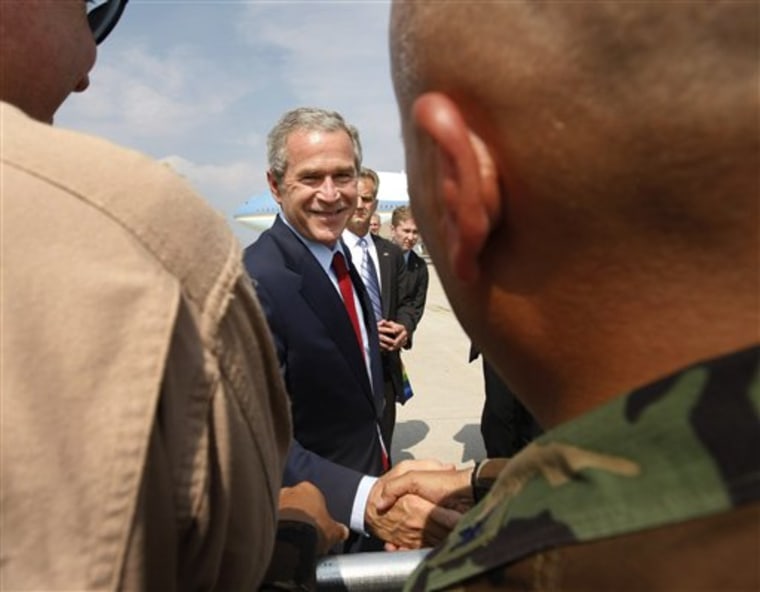President Bush likes big ideas. Yet his second term shows the risk - big collapses.
He lost his bid Thursday to overhaul the nation's immigration laws, just as he had to shelve his attempt to reshape Social Security earlier. Bush had begun his second term talking boldly of ending tyranny in the world, but the bloodshed in Iraq has narrowed his focus and turned much of the country against him.
So what's left? Plenty, his advisers say, even though this latest loss clearly hurt.
Bush watched as the Senate on Thursday killed an immigration bill he wanted badly. He saw a chance to offer tough-but-fair legalization to unlawful immigrants, shore up the border and let temporary workers come to the United States. His critics, including many conservatives from his own party, saw an amnesty bill that was unpopular and untenable.
After a surprisingly optimistic prediction just a couple of weeks ago- "I'll see you at the bill signing" - Bush couldn't pull it off.
So, glumly but quickly, he turned to what's next.
Tough times ahead?
The message spread from the president to his senior advisers to the lower-ranking staff: Keep your heads up, and keep working.
"The president is not a big believer in hand-wringing," said his communications director, Kevin Sullivan. "You've got to get onto the next thing."
The challenge only grows. Bush has about 18 months left. His opponents in Congress are emboldened. His public approval rating is dreary.
What he has left is the loudest microphone in town, veto authority and an agenda that remains relevant to the daily lives of millions of people.
Expect Bush to spend his time pushing energy legislation to promote alternative fuels, an education law that stands firm on standardized testing and health coverage for the uninsured.
"I think there are a lot of opportunities left this year, and next year, to get some important things done," said the president's counselor, Ed Gillespie. Both he and Sullivan and are among the new additions to Bush's staff, key advisers who will be counted on to infuse ideas and energy where the administration might otherwise be slumping toward the finish.
Power of the presidency
Bush will play some defense too, with warnings to veto any of the fundamental spending bills that go beyond his comfort zone, or come anywhere close to a tax increase.
The White House sees fiscal discipline as a winning issue, and a sound one, even if it's not headline material.
The Iraq war, the defining issue of his presidency, will remain his priority. A key evaluation takes place in September, and lawmakers of both parties have lost patience for progress.
Meanwhile, the clear theme coming from the White House on Thursday was a message to Congress: Don't spend long gloating over Bush's immigration loss, because voters want results.
"Congress really needs to prove to the American people that it can come together on hard issues," Bush admonished.
In reacting to the stinging setback, Bush looked like a man defeated. His body language said so. Yet those who talked to him afterward said he was disappointed, but certainly not despondent.
The description was reminiscent of the last major setback Bush endured - the loss of Congress in the November, which drastically reshaped what he could get done in his final two years.
He walked into a room of reporters and, against all news to the contrary, reminded everyone he was still the president. "I say," he said that day, "why all the glum faces?"
